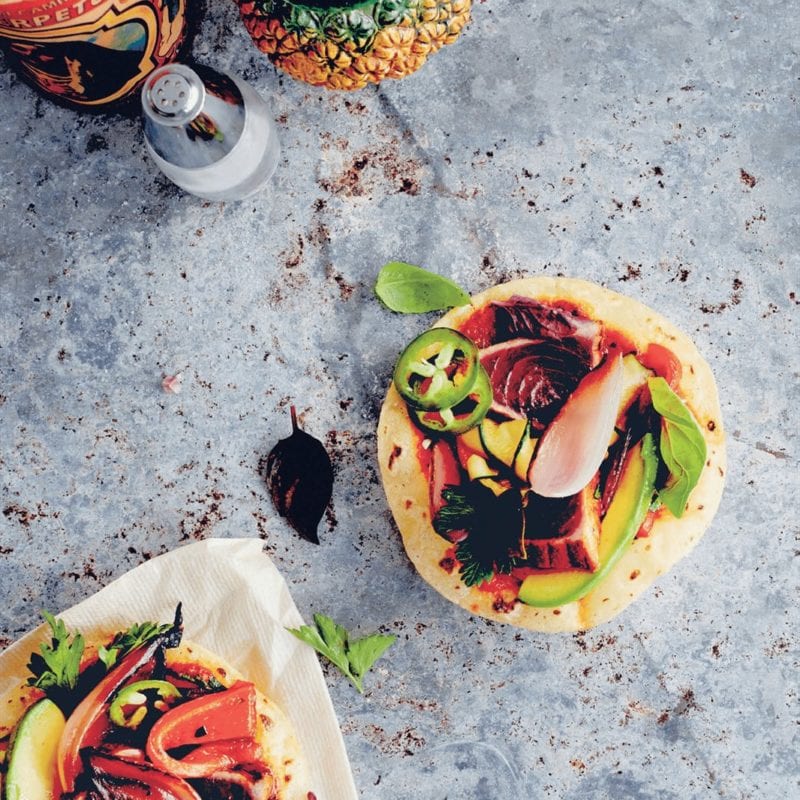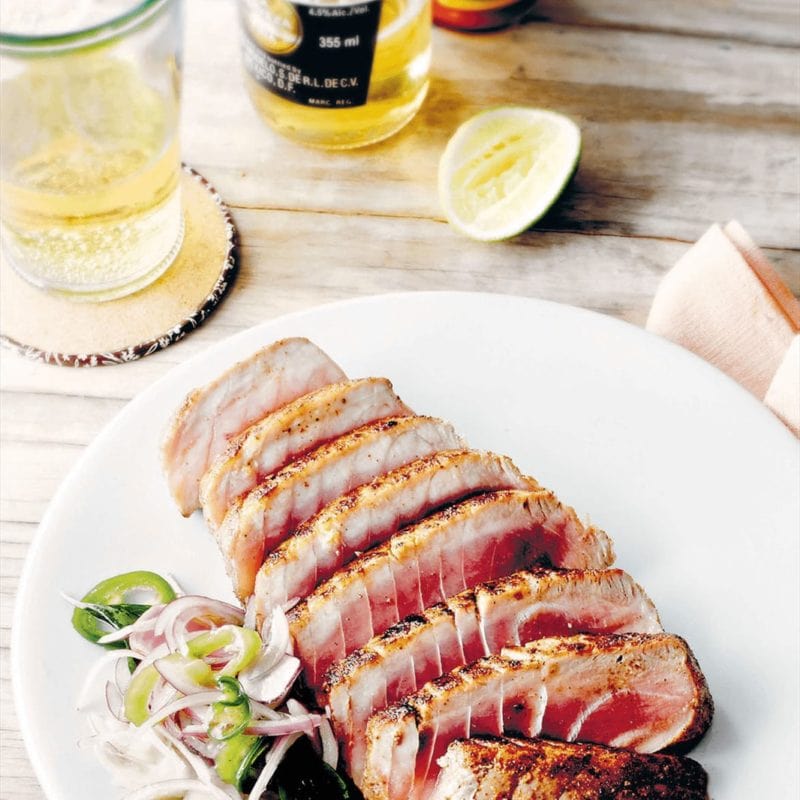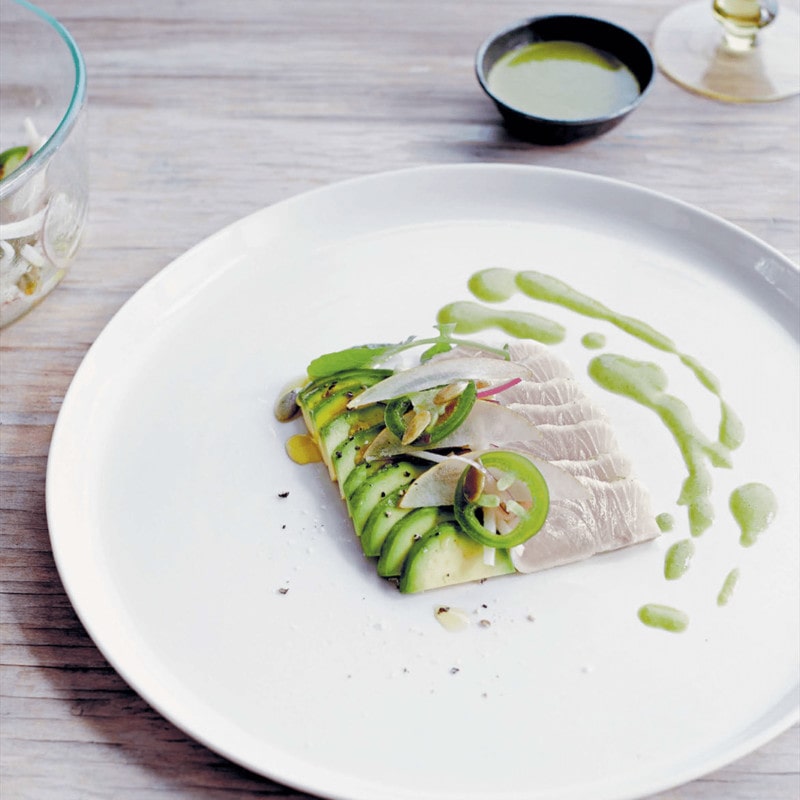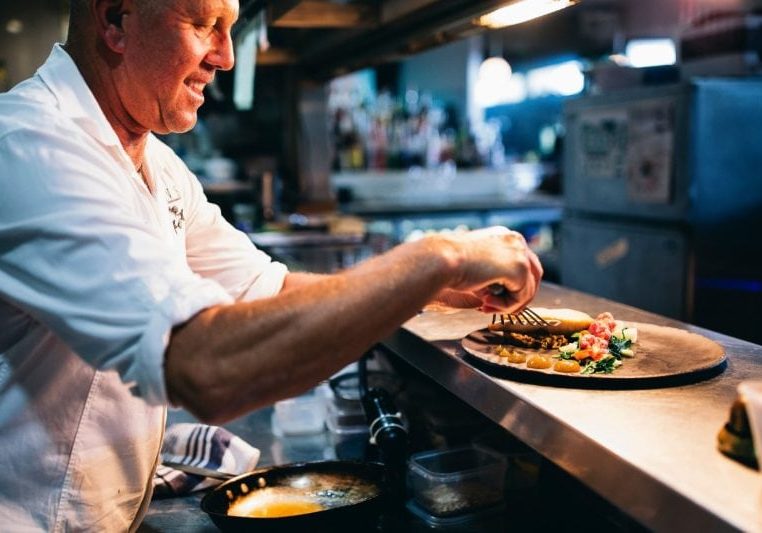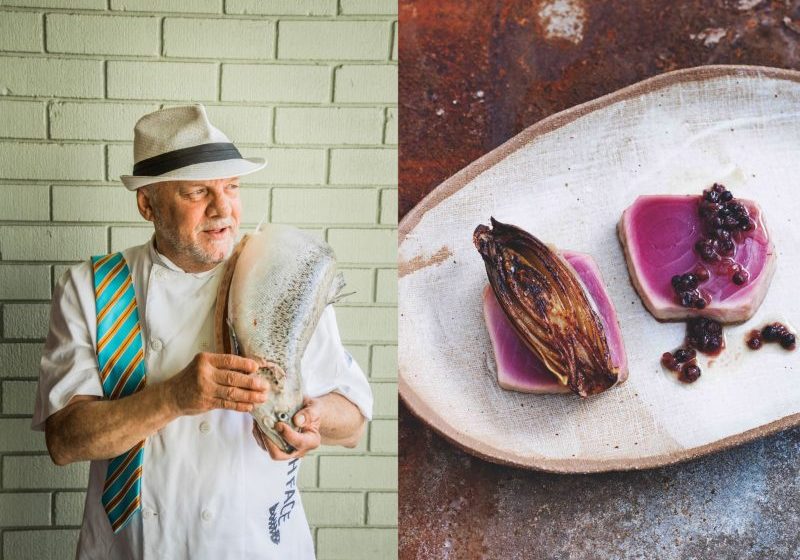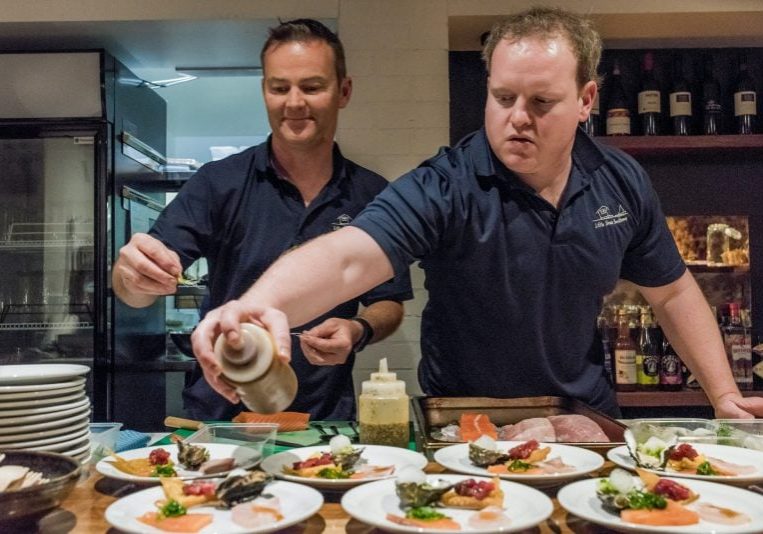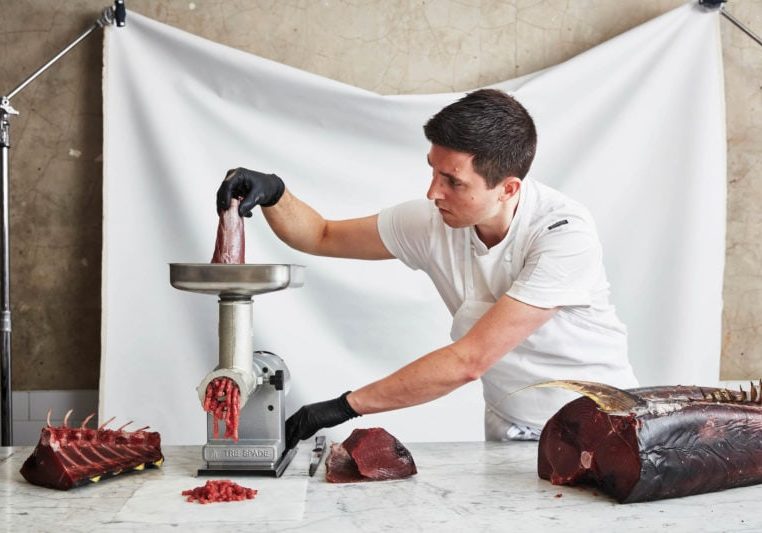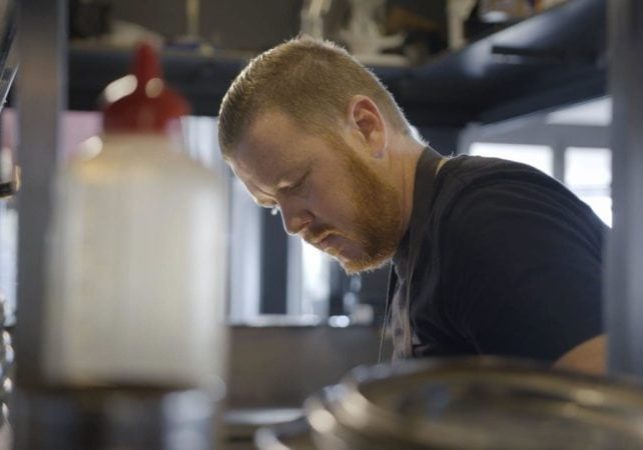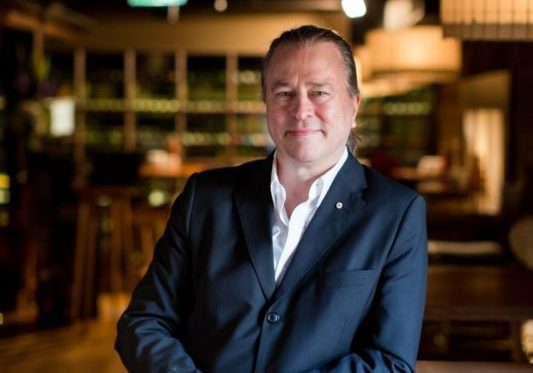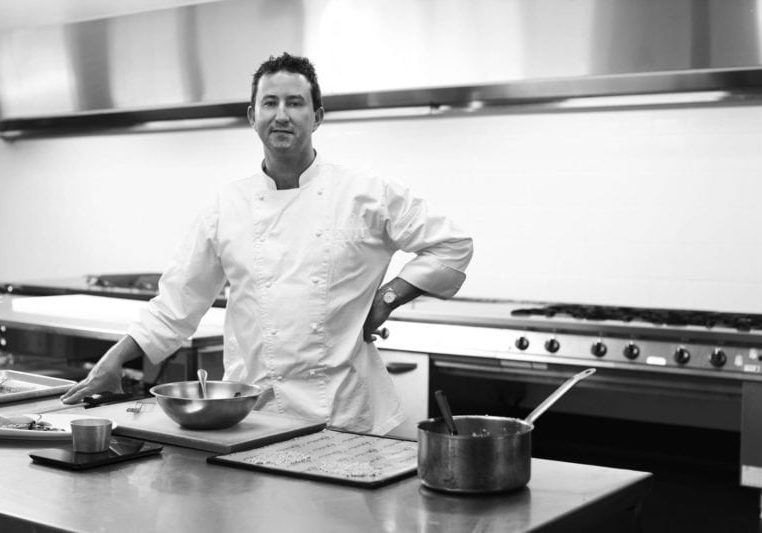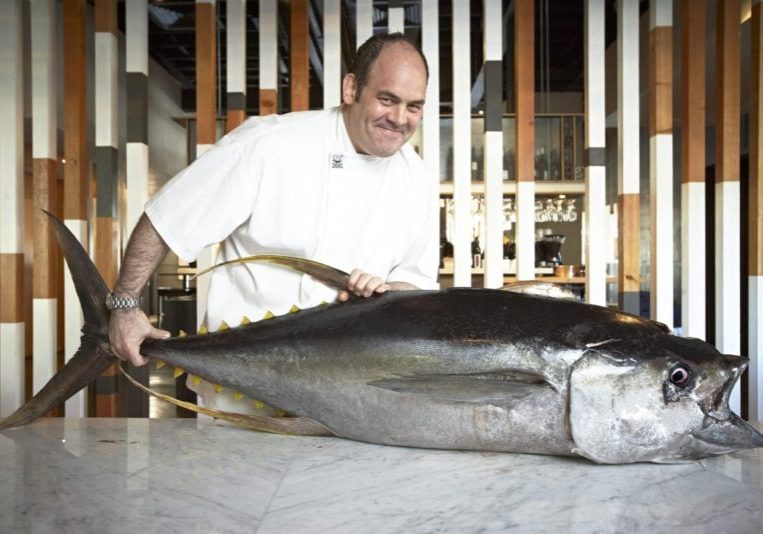Chat with a chef: Paul Wilson talks sustainable tuna
For celebrated chef Paul Wilson, who’s worked in many top restaurants across Australia, in-season and sustainable tuna and fish are a mainstay of the menus he creates. Tuna Australia caught up with Paul to discuss the tuna dishes he likes to cook, and why choosing sustainable tuna is important for restaurants and consumers.
Where are you working right now?
I’m consulting to Morgan’s Sorrento. It’s a busy beachside restaurant and bar in Melbourne’s spectacular Mornington Peninsula, where we have introduced a modern pub menu with tuna and seafood influences for summer.
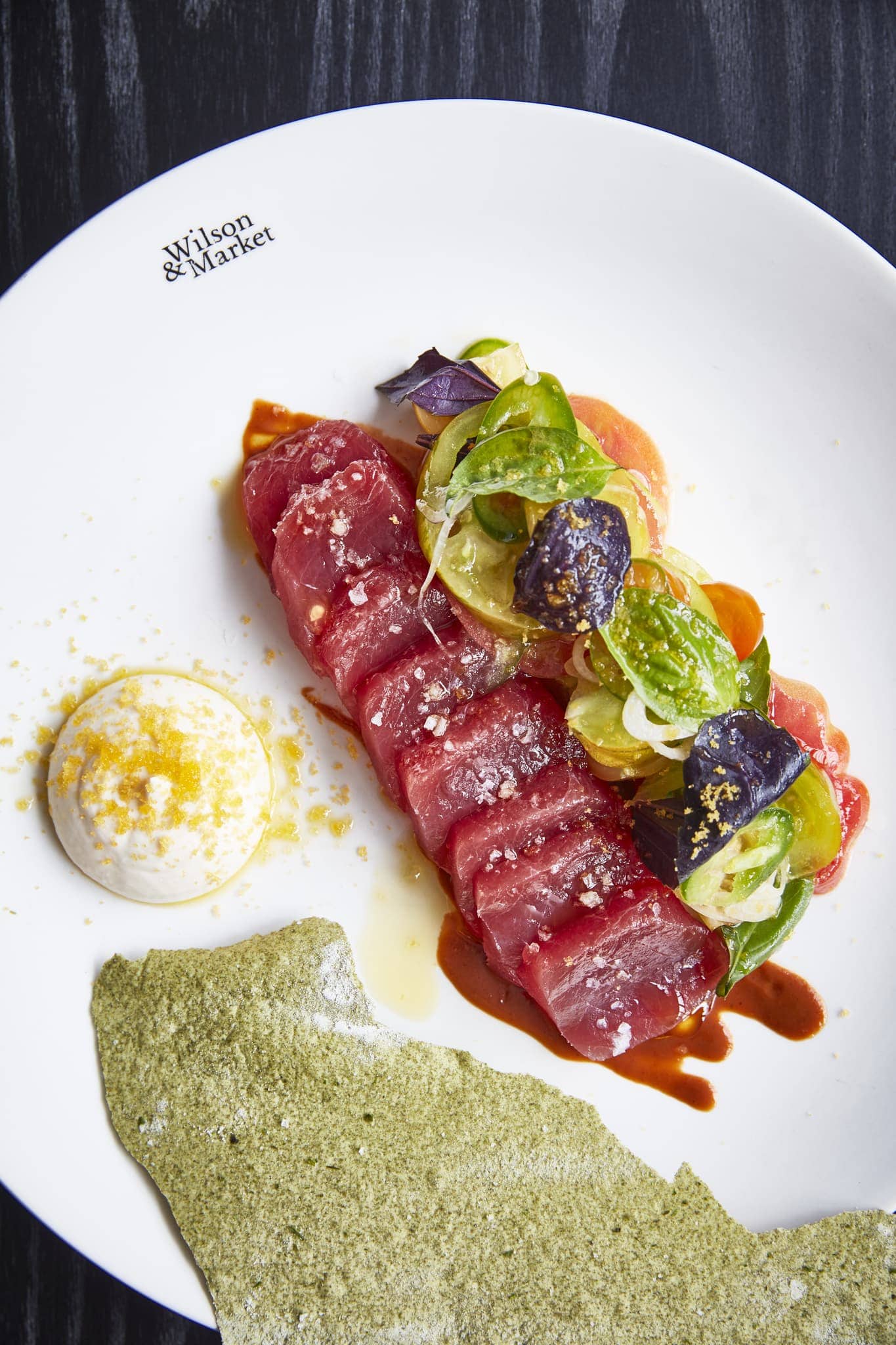
Yellow fin tuna crudo, tarama and heirloom tomato salad by Paul Wilson. Photo by Andrew Vukosav.
You’ve worked in many top restaurants across Australia. What types of tuna dishes do you cook/have you cooked?
I love promoting Albacore tuna when it’s available—it’s very versatile and great value. It’s perfect on the BBQ or for raw dishes like a Latin-inspired tuna ceviche, where the soft subtle-tasting flesh interplays beautifully with flavours of lime, chile, and coriander.
For purely raw tuna dishes, I like a fresh, clean-tasting carpaccio or seared tuna dishes where strong presentation is key.
Generally, I prefer yellowfin to bluefin because our customers are very price sensitive. Plus, the colour of yellowfin and its stable price suits our menu.
You've been a big supporter of Walker Seafood’s Marine Stewardship Council certified tuna for many years. Can you tell us more—when did you start using MSC tuna and why?
Back in 2015, I was consulting with a very famous restaurant on the water in Sydney called Icebergs Dining Room, located at Bondi Beach. The venue is frequented by foodies and wealthy glitterati from all over the world who are largely very socially aware and wish to eat in the most responsible fashion. The unique branding of MSC-certified fish on our menu gave the venue a competitive edge and strong sustainable seafood identity, resulting in it winning the Seafood Sustainability Award with the Good Food Guide.
All my menus promote sustainable fish, where possible. Sadly, the public and restaurant industry at large still don’t realise how special and well managed our local wild fish resources are. There is still a need to encourage greater awareness about what fish species to select and what to avoid.
Branding has become a key driver in promoting the appropriate seafood selection hence why we love working John Susman [of seafood industry agency Fishtales] and Walker Seafoods.
Why is choosing MSC-labelled tuna such an important choice for chefs and restaurants?
I think it makes an important statement to our customers and competition that we are committed to quality and an ethical menu approach.
Why should consumers in a restaurant or supermarket care about where their tuna and fish come from?
I think it’s embarrassing that a country like Australia imports 70 percent of its seafood and we have fishermen struggling to make a living in some areas of our country. There has to be a way of introducing more wild fish and wild fish produce into the food supply chain that is sustainable. As opposed to supporting unscrupulous seafood businesses overseas that are often guilty of endangering marine life and taking advantage of disadvantaged people in difficult situations.
The more people demanding local wild-caught seafood produce, I would imagine, will allow operators and fishermen to demand better funding and support to facilitate these new supplies.
Any final comments?
I would like to congratulate Walker Seafoods [and Tuna Australia] and the MSC team in doing their part to improve the way we eat seafood and consider our relationship with the ocean and its marine life. There’s a long way to go but I believe you are making a significant difference.
Personally, I believe we need to convince the government to support fish wholesalers to choose MSC products with further tax concessions, so everyone trades up and embraces the most sustainable way of supporting the seafood industry in Australia.
